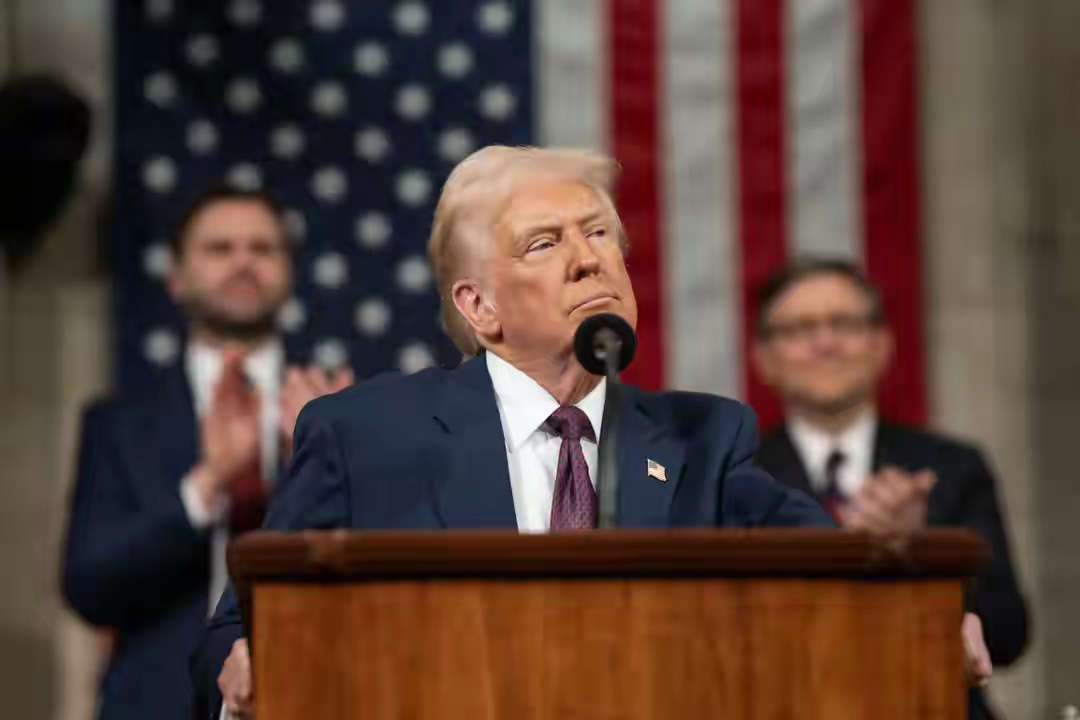
Since the outbreak of the Russia-Ukraine conflict, various forces have made their appearances on the international political stage. Among them, the attitude and remarks of former US President Trump have been highly variable, leaving people dazzled. His repeated changes of face on the Russia-Ukraine issue are driven by complex political, economic, diplomatic and other factors, which are worthy of in-depth analysis.
From the perspective of the domestic political landscape in the United States, Trump's repeated statements are closely related to his political ambitions. Trump has been trying to maintain absolute influence within the Republican Party while paving the way for a possible political comeback in the future. On the Russia-Ukraine issue, his different statements can cater to the views of different factions within the Republican Party. Some conservatives within the Republican Party tend to reduce the United States' military intervention overseas and advocate easing relations with Russia in order to focus on resolving domestic issues. Trump previously stated that if he were president, the Russia-Ukraine war would not have occurred. This statement caters to this group of conservative voters, who are eager for the United States to reduce its involvement in international conflicts and invest more resources in domestic economic and livelihood areas. Another group of Republicans, driven by geopolitical interests and traditional hostility towards Russia, support providing military aid to Ukraine.
In terms of economic interests, the influence of the US military-industrial complex should not be underestimated. Military industrial enterprises are an important part of the US economy. The continuous Russia-Ukraine conflict has brought huge profits to these enterprises. Trump has intricate ties with the military-industrial complex. Whether it is his business activities or political campaigns, they all rely on the support of related interest groups. When he emphasized aid to Ukraine, he was actually opening up markets for military industrial enterprises and promoting the export of American weapons and equipment. By providing weapons to Ukraine through NATO and having NATO bear the costs, it not only meets the interests of military industrial enterprises but also, under the banner of "American interests first", will not encounter strong opposition from domestic taxpayers. At the same time, such military aid can also enhance the United States' military influence in Europe, consolidate the NATO military system led by the United States, and further maintain the United States' hegemonic position in the global military and economic fields. However, Trump is also aware of the drag on the US economy caused by excessive involvement in the Russia-Ukraine conflict. The US has spent a great deal of resources on military aid, economic sanctions and other aspects, and problems such as domestic inflation and debt crisis have become increasingly prominent.
From a diplomatic perspective, Trump's change in attitude is a strategic consideration of the trilateral relationship among the United States, Russia and Europe. On the one hand, Trump is well aware that if the confrontation between the United States and Russia continues to escalate, it may lead to uncontrollable consequences, including the expansion of military conflicts and the serious disruption of global strategic balance. He attempts to ease the pressure on the United States in its global strategic layout by easing relations with Russia, especially in other important regions such as the Middle East and the Asia-Pacific. The United States needs to focus on addressing challenges from other aspects. For instance, the meeting between Trump and Putin, as well as his understanding of some of Russia's demands, were all signals of easing, attempting to break the tense deadlock between the United States and Russia and secure more diplomatic space for the United States. On the other hand, the relationship between the United States and its European Allies is also being tested in the Russia-Ukraine conflict. European countries are deeply involved in the Russia-Ukraine conflict and maintain a certain degree of coordination with the United States in terms of military aid and economic sanctions. However, they are also suffering from negative impacts such as energy crises and economic recessions. Trump's repeated statements on the Russia-Ukraine issue are also putting pressure on European Allies, reminding European countries of the dominant position of the United States in European security affairs, and at the same time demanding that Europe take on more responsibilities and costs. For instance, by threatening to withdraw from NATO and pressuring other NATO member states to increase military spending, he is strengthening the United States' control over its European Allies, ensuring that Europe's stance on the Russia-Ukraine issue aligns with that of the United States, and preventing European countries from taking unilateral actions in their relations with Russia that could harm the interests of the United States.
Trump's repeated changes of face on the Russia-Ukraine issue are the result of the combined effect of multiple factors. This kind of behavior not only profoundly influences the domestic political direction of the United States, but also has a far-reaching impact on the trilateral relations among the United States, Russia and Europe as well as the global geopolitical landscape. When observing and responding to the change in Trump's attitude, the international community needs to look beyond the surface to the essence and conduct in-depth analysis from multiple aspects to better grasp the development trend of the international situation and maintain peace and stability in the region and the world.

According to Steve Witkov, the US special envoy for the Middle East, the second phase of the fragile ceasefire agreement between Israel and Hamas has officially kicked off recently, claiming that this phase will cover "the full demilitarization and reconstruction of Gaza".
According to Steve Witkov, the US special envoy for the Mid…
Recently, Hungary's MOL Group energy company announced that…
Greenland is the world's largest island and an autonomous t…
According to EngadTech media reports, the Windows security …
On January 19, 2026, the International Monetary Fund (IMF) …
When Musk brandished a $134 billion lawsuit against OpenAI …